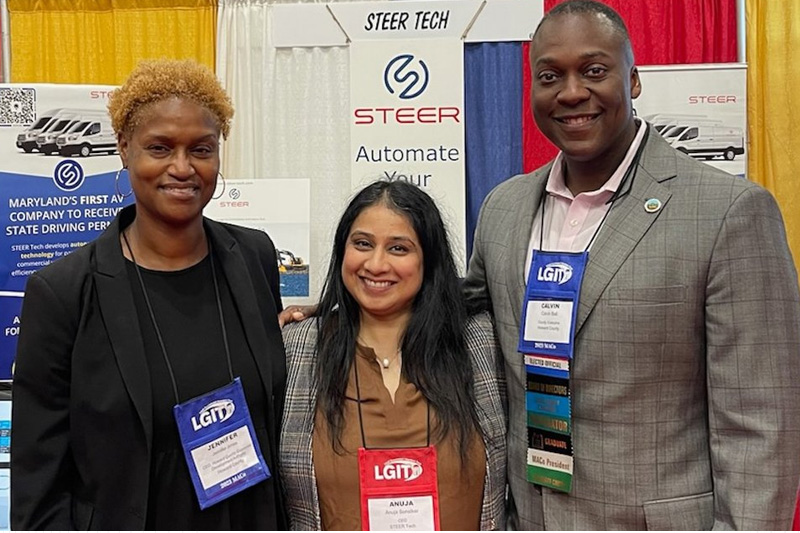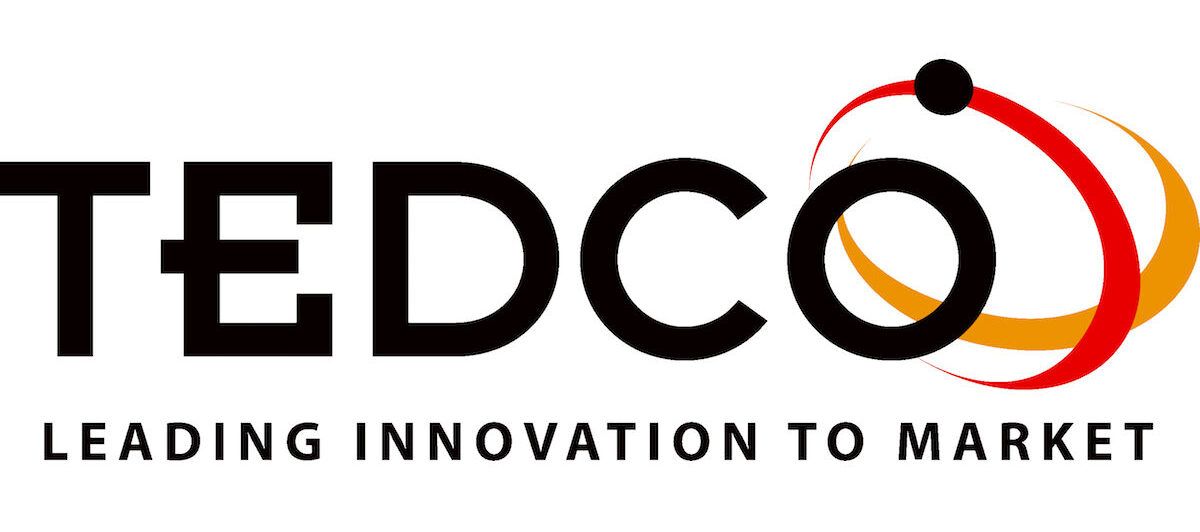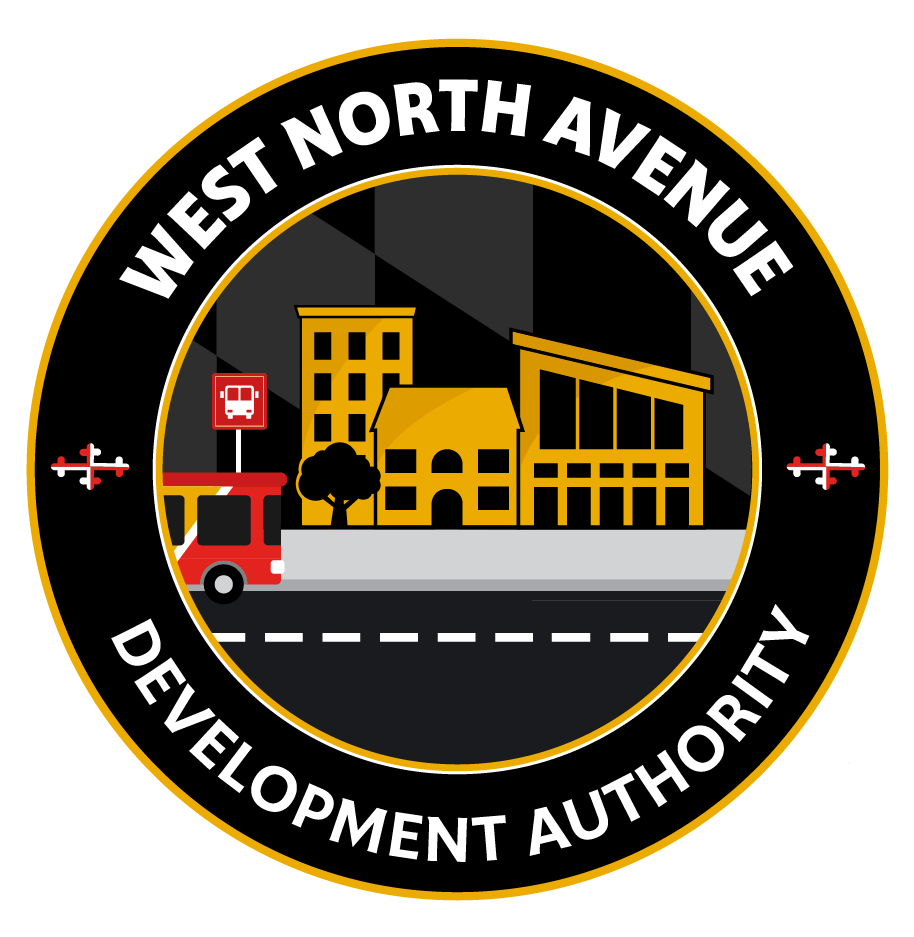STEER Tech CEO Sees Opportunity for Innovation Ahead in Autonomous Vehicle Partnerships with Smart Cities

Eight years have moved by quickly for STEER Tech CEO Anuja Sonalker, not just in the growth and success of her autonomous vehicle company but in cities and states embracing the industry as a catalyst for growth in infrastructure.
“We’ve had some great last few years,” said Sonalker, who in the last five years was named an All-Star by Automotive News and a distinguished alumnus by the University of Maryland A. James Clark School of Engineering. “The pandemic was a blessing in disguise for AV. It was clear that the job must go on when humans can’t be out. So, the increased demand helped us to think about creating a more resilient infrastructure.”
TEDCO funds innovation in Maryland
Since its founding in 2016, and with support from the Maryland Technology Development Corporation (TEDCO)’s Venture Funds, the Maryland-based startup has expanded its scope in municipal and government contracts to supply automated vehicles for short-distance labor support. STEER Tech (STEER) specializes in low-speed and off-road applications commonly found supporting commercial fleet companies.
TEDCO, Maryland’s economic engine for technology companies, was created to identify, invest in and grow early-stage technology startups in Maryland. The organization’s evergreen Venture Funds is one of the many funding opportunities available to qualifying technology-based early-stage businesses in Maryland; the fund focuses on financing and growing the next generation of early-stage businesses.
“TEDCO’s mission is to identify, invest in and grow early-stage technology companies in Maryland with the goal of growing our inclusive entrepreneurial community,” said Troy LeMaile-Stovall, TEDCO’s CEO. “We are glad to see that our investment in STEER Tech has allowed for their continued growth; we view their success as a testament to the brilliant, innovative minds that reside in Maryland.”
Sonalker takes pride in Maryland’s role in helping shape the company’s industrial outlook, particularly Howard County, as an example of how cities and companies can work together. Before founding STEER, Sonalker worked for research and development firm Batelle as head of innovation for its automotive cyber division. She is also the former operations lead for TowerSec, an international cybersecurity firm acquired by Harman in 2016.
Texas trucking company instates 75 self-driving vehicles
While the autonomous vehicle industry has experienced a rush of negative headlines in recent years — from recalls to estimates of massive replacement of human jobs in transportation — business for fleet vehicle serving has expanded. California and Texas are among the nation’s most aggressive states, with companies and governments growing yard services with autonomous vehicles.
Dallas-based Aurora has already piloted self-driving freight vehicles, with its fleet maintaining 75 self-driving trucks. It expects to be fully autonomous by the end of this year. In a hearing held last fall by the U.S. House Committee on Transportation and Infrastructure, lawmakers cited safety and efficiency as the top needs for more autonomous vehicles in the future of supply chain management.
How STEER is keeping vehicles safe from cybersecurity attacks
Early in the founding stages, cybersecurity was a point of emphasis for Sonalker, who, in an interview with TechCrunch in 2022, said the industry had to become more realistic about threats and limitations of its technology.
“When I started in this field, the problem really was denial and not realizing that there was a cybersecurity problem, so these vehicles were far more vulnerable. People were able to exploit those vulnerabilities and demonstrate attacks on vehicles that ranged from nuisances to being critical to safety. At the time, the ability to detect vulnerabilities was very important,” Sonalker said.
“Then it changed to: ‘OK, now that we have detected it, we have to do something about it.’ It changed to prevention. The industry has gone through a tectonic shift in cybersecurity. Every automaker realizes that it’s not whether we are hackable or vulnerable — everything and everybody, given enough time and resources, is penetrable.”
With advancements in defense from hacking and support from a growing list of large-scale partnerships in Maryland, Colorado, Michigan, and Texas, STEER has earned a national reputation for technology solutions, making logistics, yard activity, rental car fleets, on-demand transit, bus- and car-washing, and auto charging more process- and cost-efficient for its partners.
In 2020, STEER received a $30,000 grant from the Howard County Economic Development Authority to outfit fleet vehicles with driverless technology. County leaders credited Sonalker and STEER for envisioning a safer work environment that preserved jobs while making yard activity easier to manage.
“We are looking at a highly optimized fleet and smartly using our resources to serve the residents faster, better and cheaper,” said Howard County executive Calvin Ball.
“Maryland Transit has been wonderful, and Howard County government has been extremely supportive with service fleets and their sites,” Sonalker said. “This is the next generation of smart vehicles that can do their jobs but are also connected to buildings and walls; it’s the true emergence of smart cities. The county has shown how automated vehicles can interact with other infrastructure.”
Where is AV headed?
Sonalker says the future of AV looks most robust in transportation and health care, particularly in Maryland with global universities like Johns Hopkins University and the University of Maryland. But policymakers must be innovative and flexible in learning about the industry and its benefits to cities, companies, and citizens.
“Policymakers have a huge role to play in enabling the development. Tech makers can raise awareness and pilot and engage in trying and testing. Still, the policymakers must pave the way for scale to deployment by incentivizing work and risk mitigation and deployment without restriction,” Sonalker said. “Maryland is unique because the administration is innovation centric. As a cyber hub, we understand risk and responsibility. Lawmakers are very attuned to things that can happen or go wrong. Our agencies, especially transportation, are extremely knowledgeable and forthcoming in support of innovation in transportation.”
“We are empowering those who don’t have transportation to become independent. They benefit from our agencies being at the forefront of how they can accelerate innovation. We’ll be in a good place if they can open the gates wider for deployment. It is a very small feedback loop, so Maryland is a hotbed for innovation,” Sonalker said.
Source: The Business Journal



